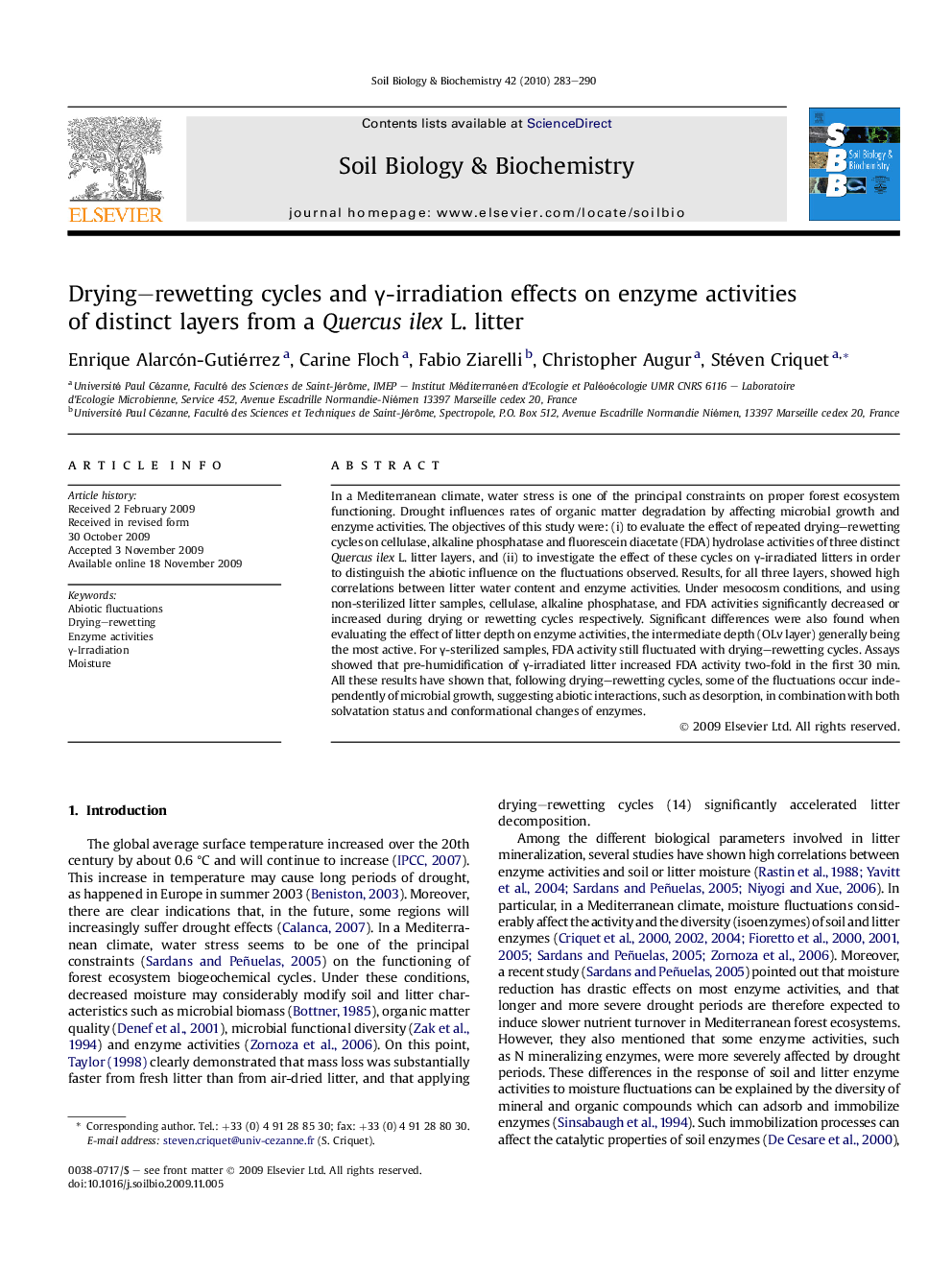| Article ID | Journal | Published Year | Pages | File Type |
|---|---|---|---|---|
| 2025137 | Soil Biology and Biochemistry | 2010 | 8 Pages |
In a Mediterranean climate, water stress is one of the principal constraints on proper forest ecosystem functioning. Drought influences rates of organic matter degradation by affecting microbial growth and enzyme activities. The objectives of this study were: (i) to evaluate the effect of repeated drying–rewetting cycles on cellulase, alkaline phosphatase and fluorescein diacetate (FDA) hydrolase activities of three distinct Quercus ilex L. litter layers, and (ii) to investigate the effect of these cycles on γ-irradiated litters in order to distinguish the abiotic influence on the fluctuations observed. Results, for all three layers, showed high correlations between litter water content and enzyme activities. Under mesocosm conditions, and using non-sterilized litter samples, cellulase, alkaline phosphatase, and FDA activities significantly decreased or increased during drying or rewetting cycles respectively. Significant differences were also found when evaluating the effect of litter depth on enzyme activities, the intermediate depth (OLv layer) generally being the most active. For γ-sterilized samples, FDA activity still fluctuated with drying–rewetting cycles. Assays showed that pre-humidification of γ-irradiated litter increased FDA activity two-fold in the first 30 min. All these results have shown that, following drying–rewetting cycles, some of the fluctuations occur independently of microbial growth, suggesting abiotic interactions, such as desorption, in combination with both solvatation status and conformational changes of enzymes.
